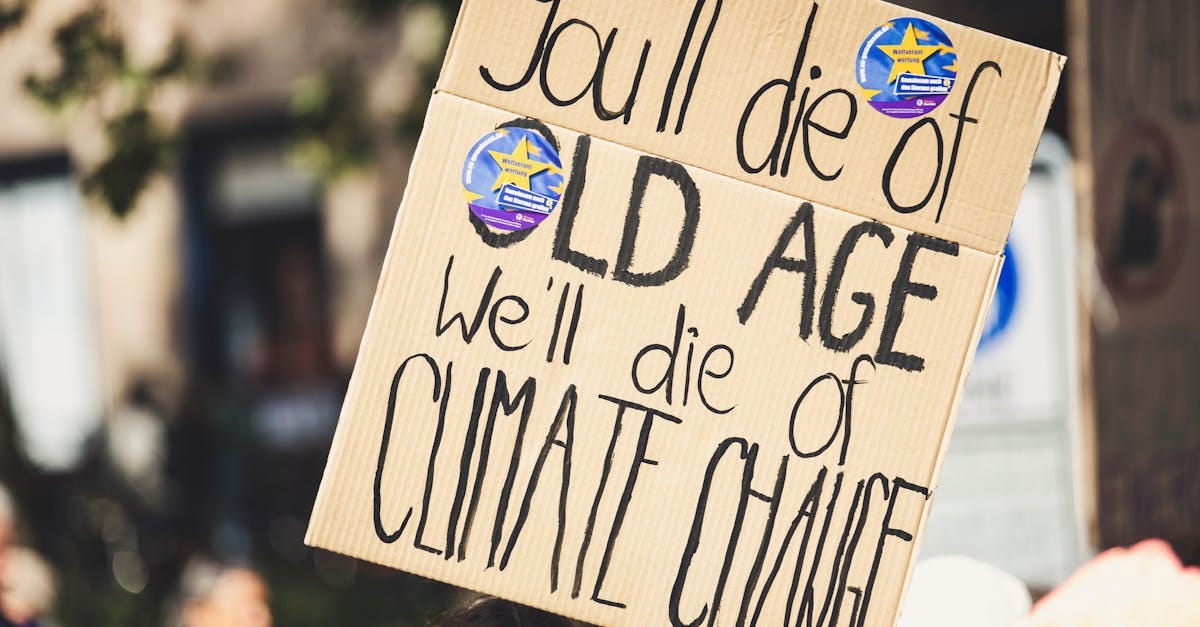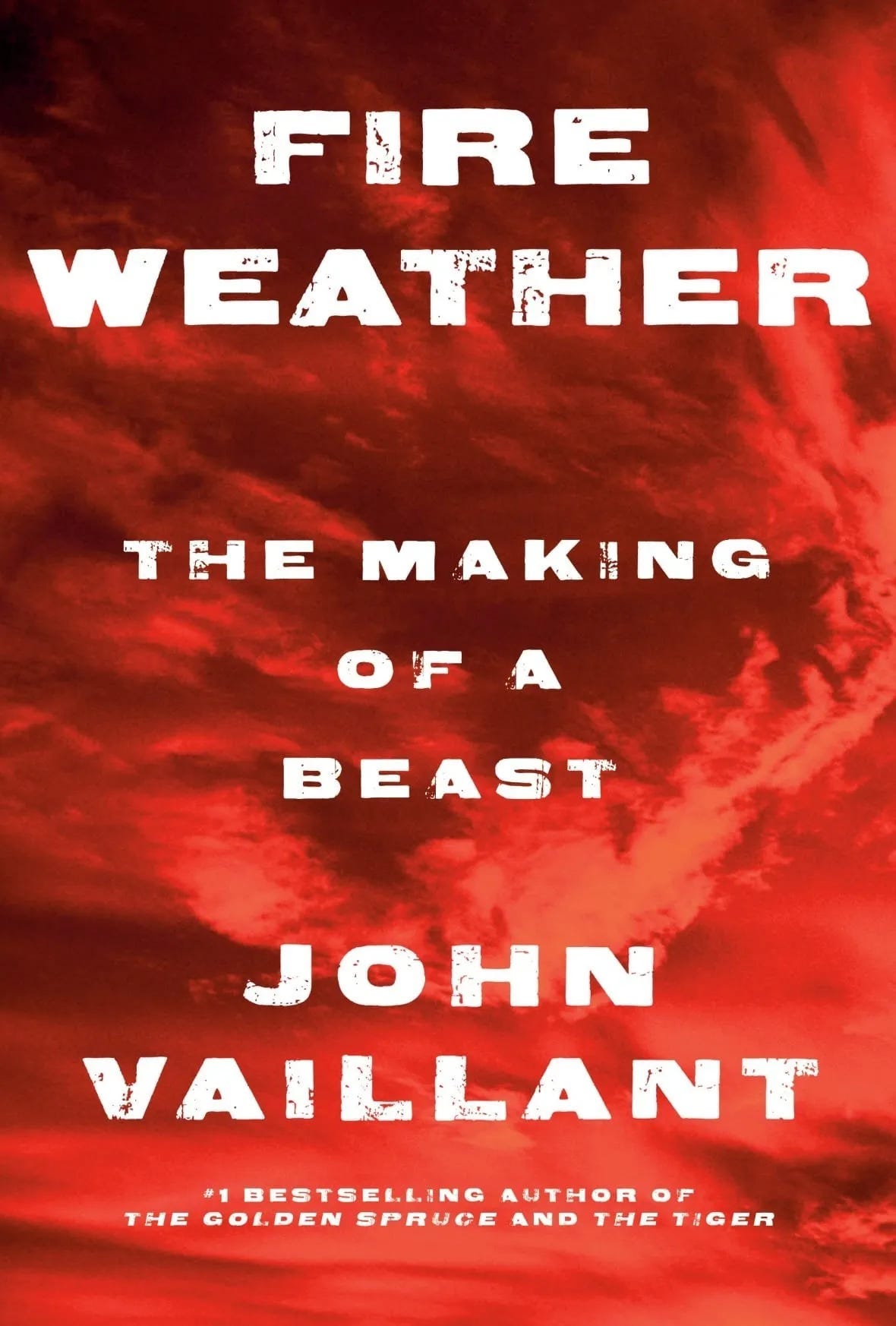Newsletter: Issue 32 - The Year We Could Have Acted—But Didn't
Weekly thoughts, readings, musings and links from Athena Drakou, best known as The Climate Historian.
Why Young People Feel Robbed of Their Future
For young people today, climate change isn’t a distant threat- it’s an ever-present shadow that shapes their daily lives, their emotions and their sense of hope. A survey of 10,000 16-to-25-year-olds across 10 nations found that 60% feel “very worried” or “extremely worried” about the future. More than half of respondents reported feeling sad, anxious, angry, powerless, and even guilty. Most troubling of all? Three out of four respondents believe the future is frightening. An overwhelming 83% feel that humanity has failed to protect the planet.
And whom do they blame? Governments. Two-thirds of young people say their leaders are failing them—ignoring science, delaying action, and prioritising short-term politics over long-term survival.
But climate change is just one part of their growing distress. Young people see shootings and knife attacks in their schools. They see war breaking out across the globe. They see innocent people suffering while those in power offer little more than empty words.
Yet, they believe in science. They ask hard questions. They demand honesty and truth.
Of course, truth in our time has become a slippery thing. But at its core, truth is meant to reflect reality—a reality that young people can see all too clearly. They don’t want sugar-coated optimism or vague promises of future prosperity. They see their parents struggling. They see governments borrowing against their futures.
But here’s the thing about young people: they don’t just want to despair. They want to act. They want to work for a future they can believe in. And so, they turn to science once again—not just for warnings, but for answers.
The real question is: Will we listen? Will we act? Or will we, too, fail them?
Published on The Heretic Witch
This Week on The Climate Historian
The Climate Historian on YouTube: Sounding the Climate Change Alarm Lessons from Carl Sagan
Carl Sagan warned us about global warming decades ago, drawing lessons from Venus’ runaway greenhouse effect. In the 1980s, he urged action on fossil fuels, renewable energy, reforestation, and poverty. Nearly 45 years later, have we made progress or fallen behind?
February 10, 2025—A Deadline Missed, A Climate Crisis Deepened
February 10, 2025, was supposed to be a milestone—a moment for nations to reaffirm their commitment to fighting climate change. The task was simple: submit updated climate pledges under the Paris Agreement. The reality? A global shrug.
According to Carbon Brief, out of 195 signatories, only 10 countries have submitted their Nationally Determined Contributions (NDCs) for 2035. Just two G7 nations—the US and the UK—met the deadline. However, the US submission came before Donald Trump’s return to the White House last month. True to his campaign promise, his administration has already begun pulling the country out of the Paris Agreement—again.
The other countries to meet the deadline are– Brazil, the United Arab Emirates, New Zealand, Switzerland, Uruguay, Andorra, Ecuador and Saint Lucia. The rest, including major emitters like China, India, and the European Union, are nowhere to be seen.
Back at COP26 in Glasgow (2021), world leaders rallied behind a hopeful slogan: “Keep 1.5°C Alive.” Fast forward to 2025, and that ambition feels hollow. In hindsight, was it ever truly alive? Or it was already dead, destined to be deployed only as an empty slogan.
Read the article here (also in audio)
Climate News
The 2-Degree Target Debate
Holding long-term global warming to two degrees Celsius – the fallback target of the Paris Climate Accord – is now "impossible," according to a stark though hotly debated new analysis published by leading scientists.
Led by renowned climatologist James Hansen, the paper appears in the journal Environment: Science and Policy for Sustainable Development and concludes that Earth's climate is more sensitive to rising greenhouse gas emissions than previously thought. (Science Alert)
Oil giant BP has said it will "fundamentally reset" its strategy as profits dropped sharply last year.
Turns out, saving the planet isn’t profitable enough.
BP will "fundamentally reset” its strategy and Norwegian energy giant Equinor announced plans to slash its renewable energy investments by half over the next two years, all while ramping up oil and gas production.
The CEO of EquiNor put it bluntly: "We don't see the necessary profitability in the future" in renewables.
Profit over the planet, as usual. (BBC)
World's Fourth Largest Lake Now a Deadly Desert
Before the 1960s, the fourth largest lake on Earth glistened for miles across the borders of Uzbekistan and Kazakhstan.
By 2015 most of that shiny surface was reduced to a hauntingly barren expanse, birthing the world's newest desert and impacting 3 million people that live in the surrounding region.
The Aral Sea once spanned 68,000 sq km (26,000 sq mi), but reports now suggest all that currently remains is a few slivers amounting to about 8,000 sq km of water. The rest of its bone-white seabed now forms the Aralkum desert. (Science Alert)
Book of the Week: Fire Weather: A True Story from a Hotter World by John Vaillant
The Fort McMurray wildfire, also known as the "Beast," was an unprecedented catastrophe that unfolded in Alberta, Canada, in 2016. This devastating event serves as a case study illustrating the alarming consequences of a warming world. The fire, driven by a combination of climate change and dry weather conditions, engulfed the region and forced nearly 90,000 people to flee their homes. Entire neighbourhoods were reduced to ashes, leaving a trail of destruction in its wake.
Read the rest here
What Else I’m reading
Bill Gates and the New Trumpian Tech Oligarchs
Interesting interview with Bill Gates in The New Yorker ($). David Remnick doesn’t shy away from pressing him on the state of America today and the influence of the newer, Trump-aligned tech oligarchs. Gates, ever the diplomat, responds with careful tact—but let’s just say he lands on the right side of history. He’s also making the rounds to promote his latest book.
The race is on to build an AC unit that doesn’t cook the planet
There’s a $1 million prize for anyone that can design a room air conditioner that costs no more than twice what a standard one costs and produces five times less greenhouse gas. (Anthropocene)
The Mediterranean diet is a lie
“It’s a beautiful story and a terrific seasoning for our meal. The only problem is it’s not true. Fifty years since the term was coined by the American physiologist Ancel Keys — and a decade and a half after UNESCO recognized it as an intangible cultural heritage of humanity — the Mediterranean diet has become a mishmash of hyperbole, half-truths and howlers, stirred together for political and commercial ends.” (Politico)
Quote of the Week
“It’s really hard for native English speakers to see, and let alone experience, how not being fluent in English is commonly viewed as the same as being inferior as a scientist.”
Biologist Tatsuya Amano researches language inequality barriers in science to bring 0attention to the often-ignored biases against non-English speaking scientists. (Nature)
This article is free to read, but if you found it useful, please consider subscribing or making a small donation at my Buy Me A Coffee page below. The Climate Historian is an independent publication, entirely supported by readers like you.








